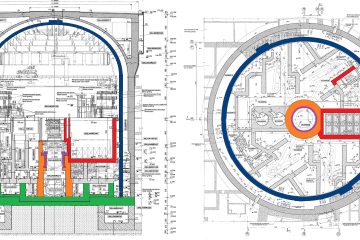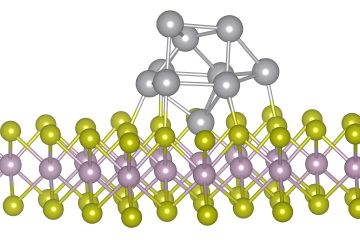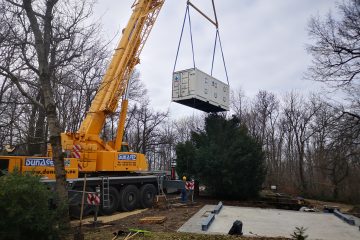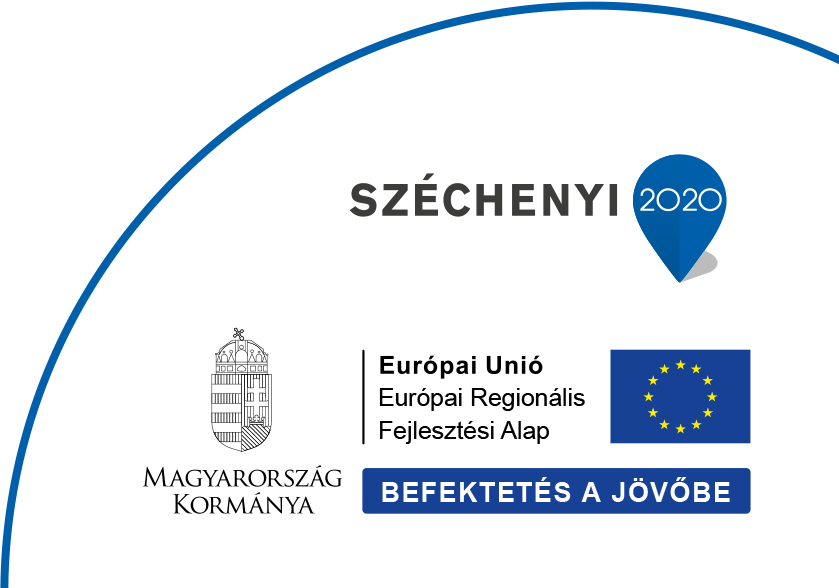The Centre for Energy Research (EK) was designated to be the first Collaborating Centre for nuclear security (nuclear forensics) of the International Atomic Energy Agency (IAEA) for 4 years in 2016. Recently, this year, the EK has been redesignated for the period of 2021 – 2025. The nomination ceremony was attended by Ms. L. Evrard, Deputy Director-General, Director of the IAEA Nuclear Safety and Security Department, Ambassador Károly Dán, Head of the Hungarian UN Mission, Ákos Horváth, Director-General of the Centre for Energy Research and Éva Kovács-Széles, Head of the IAEA Crime Scene Management and Nuclear Forensics Unit.
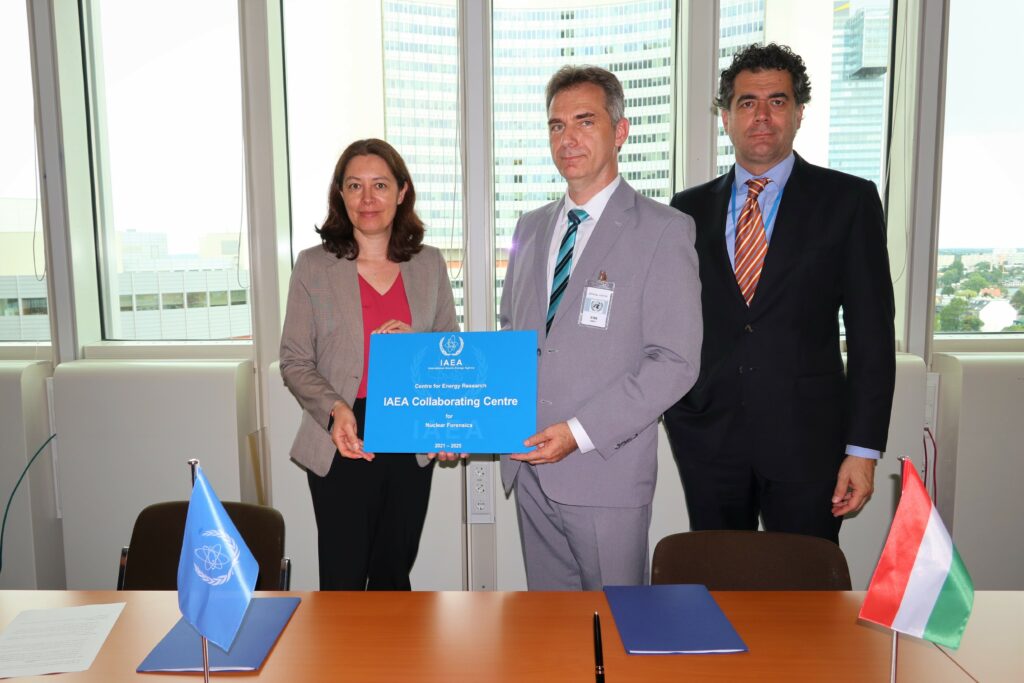
The nuclear and other radioactive materials in unauthorised hands can be used to carry out various criminal acts (e.g. radiological terrorism) resulting in serious economic, environmental and health consequences. The prevention of such panic-inducing crimes or the better handling of the evolving situation demand the reinforcement of international nuclear security. One priority area of nuclear security is Nuclear Forensics, which helps the authorities with the detailed analysis of the confiscated radioactive or nuclear materials with unknown origin. By determining the origin of these materials, discovering the responsible persons and the smuggling route, further theft of materials and nuclear terrorist attacks can be prevented.
Nuclear forensics is an interdisciplinary field, which requires strong expert background and experience. Besides, a state, with effective nuclear forensic capabilities, can easier avoid a terrorist attack due to the deterrent effect. Nuclear Forensics in Hungary has emerged during the 90’s with the analysis of smuggled nuclear materials. These substances, after the disintegration of the Soviet Union, appeared at different places all over Eastern-Europe, and it was necessary to determine their origin. Therefore, these kinds of investigations have been delegated already in 1996 as a governmental decree to the predecessor of EK (called Institute of Isotopes, IKI). Over the last 15 years, this area has been consciously and programmatically developed by IKI and then by EK management. Parallel to these activities a strong connection was formed with the IAEA.
Nowadays, nuclear forensics is involved in the activities of the Nuclear Security Department (NSD) at EK. The research, method development and technical service tasks at the NSD are carried out in several closely cooperating groups: non-destructive (gamma spectrometry and neutron measurement), destructive (mass spectrometry), dosimetry, instrument development, detection and mobile expert support team, and a detector testing laboratory.
A cooperation program, called Practical Agreement was signed with the Agency in 2012. In this program EK offered its nuclear forensic capabilities to support the IAEA’s Member States, including several new educational and expert programmes, developed and launched in Hungary from 2014 onwards. As a result, in 2016 IAEA designated EK as its first Collaboration Centre in nuclear security, i.e. for nuclear forensics. Until 2020, i.e. in the 4 years nomination period, 60 participants from about 20 MSs participated at various trainings and scholarship programs. In addition, EK participated in the nuclear forensics oriented Coordinated Research Programmes of the IAEA and also supported the IAEA’s activities by editing relevant documents and by carrying out expert missions.
The activity of the Collaborating Centre is very significant both nationally and internationally. On national level EK is involved in bi- and multilateral R&D cooperation programs with universities and research institutions, while its collaboration with national authorities and organizations is also of high importance (e.g. Hungarian Atomic Energy Authority, Police – National Bureau of Investigation (NNI), Counter Terrorism Centre, Disaster Management Directorate, Hungarian Army). As one of the results of the cooperation of EK and the Hungarian authorities, the experts of EK and the NNI organized a live demonstration at a radioactive contaminated crime scene in 2020 in Vienna at the International Conference on Nuclear Security (ICONS).
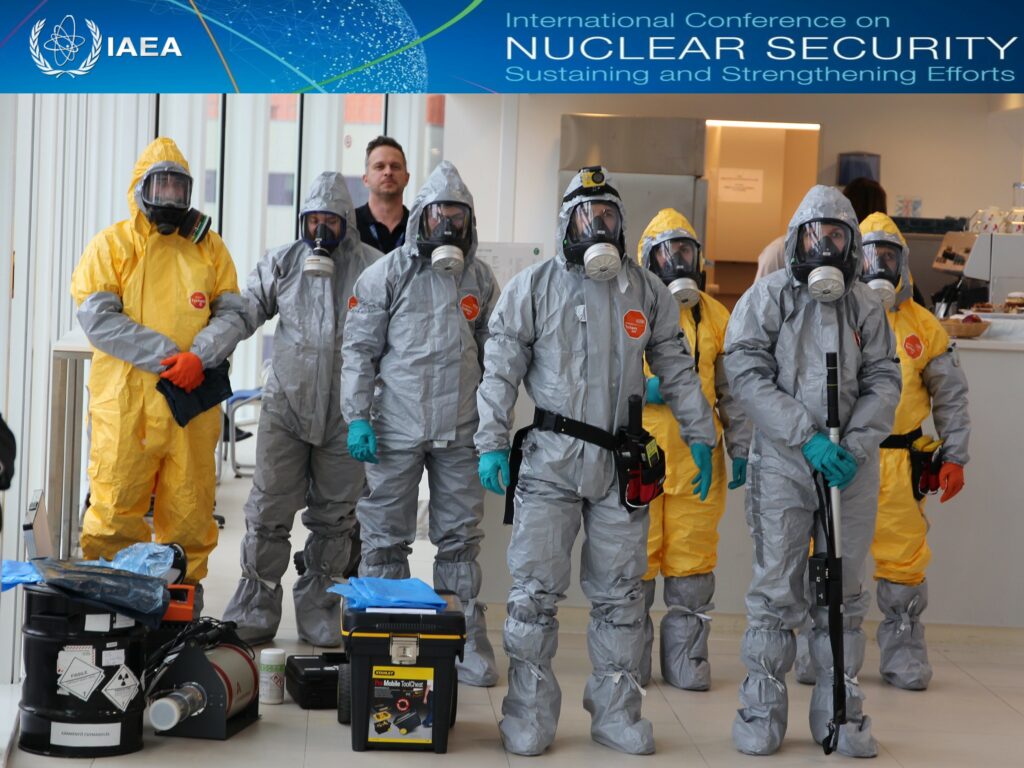
Virtual Consultancy Meeting to the IAEA Collaborating Centres for Nuclear Security
At the beginning of September the IAEA organized a virtual Consultancy Meeting for IAEA Collaborating Centres for Nuclear Security. The purpose of this event was to provide a forum to share experiences, lessons-learnt and the benefits of these Collaborating Centres. The objective of the meeting was the introduction of these centres of the relevant IAEA Member States (China, France, Hungary, Japan, Morocco, Russia, Spain) in order to gain an overview on their ongoing activities, resources and technical background. This information, gained at the virtual meeting, was utilized during the discussion of another aim of the meeting, i.e. the encouragement of Collaborating Centres for cooperation and the selection of its potential future areas.
